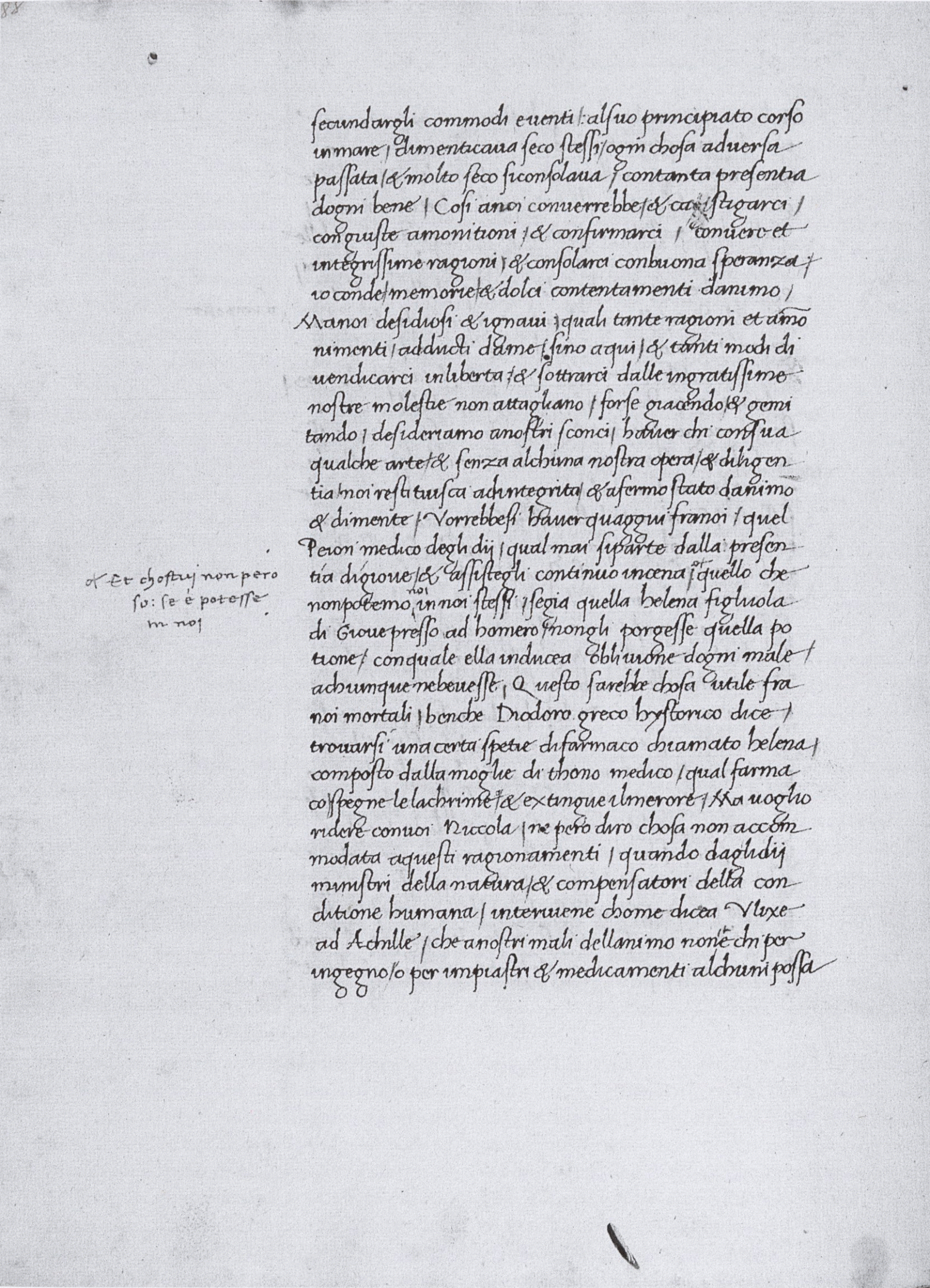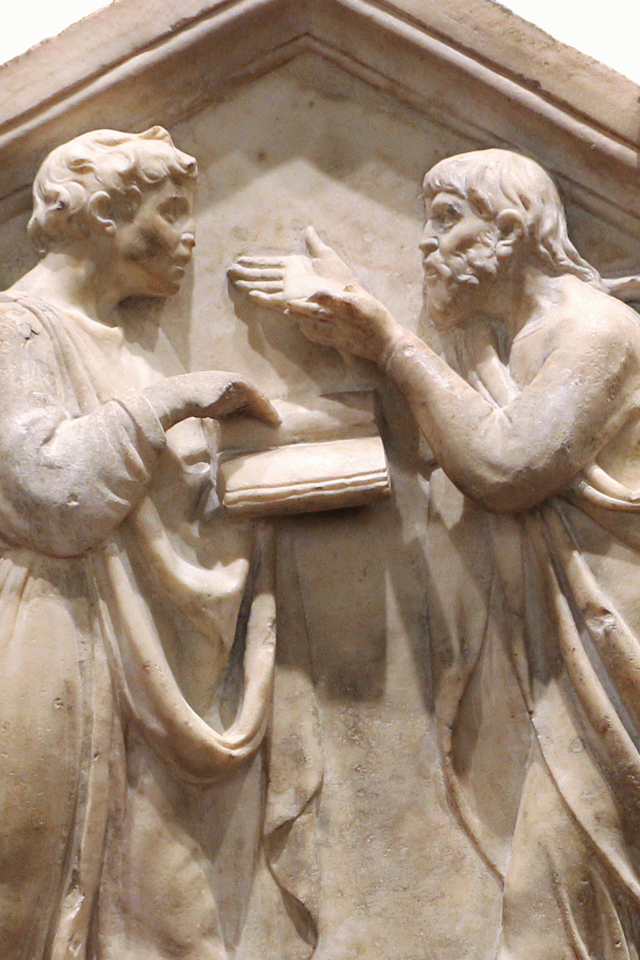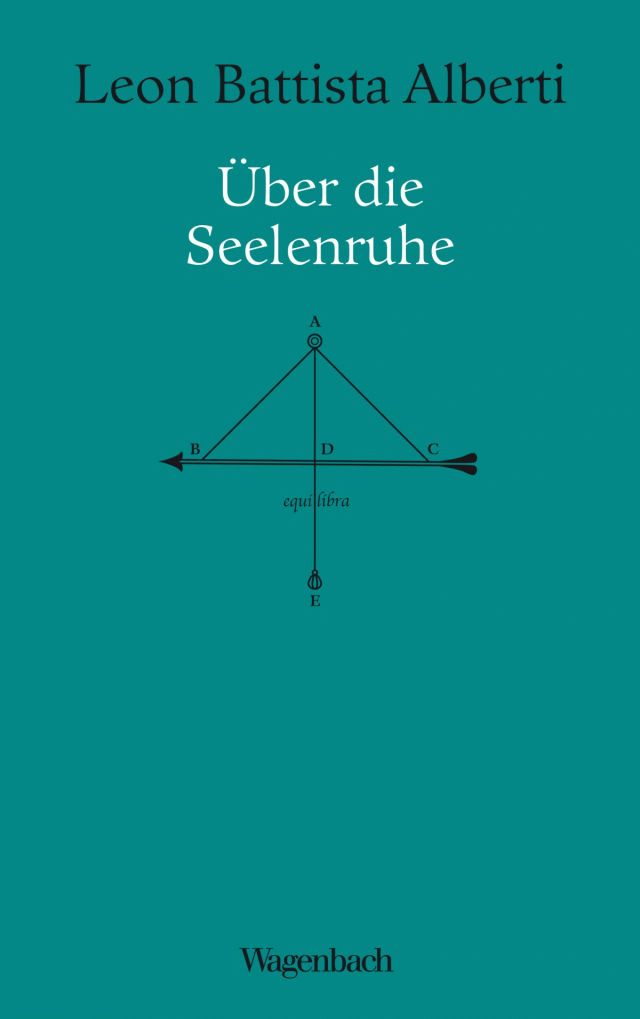Research
The Edification of the Soul: Leon Battista Alberti’s Dialogue Della tranquillità dell’animo
Hana Gründler with Katharine Stahlbuhk, Giulia Baldelli, Louis Berger, and Jacob Veidt
This interdisciplinary project was dedicated to the first German translation of and commentary on Leon Battista Alberti’s dialogue Profugiorum ab aerumna libri III, also known as Della tranquillità dell’animo. Over a period of three years the project members, in a constant process of interdisciplinary exchange, discussed and refined the translation from the Italian vernacular, investigated and distilled the main topics and motifs of the dialogue and composed a detailed commentary.
On the Tranquillity of the Soul, written in the first half of the 1440s, offers insights into early modern interpretations of the self and its edification and care, and reflects on key concepts and works from antiquity and Christianity through the Middle Ages. The importance of aisthesis and of specific bodily, intellectual and intersubjective exercises in this process of self-edification was a controversial topic and was intensively discussed during this period. As the critical analysis and contextualization of the dialogue has shown, Alberti repeatedly addresses similar questions in his œuvre, whereby for him sensual perception in general and the aesthetic-artistic experience of the built environment in particular play a fundamental role in the ethical, but also political constitution of the human being. A closer look at the text has also demonstrated that beyond its theoretical conceptualizations of sensuality, Della tranquillità dell’animo is endowed with an intrinsic linguistic sensuousness that decidedly cannot be reduced to its propositional content.
In addition to making this important work accessible to German-speaking audiences for the first time, this project aimed more broadly to develop further fundamental insights into Florentine civic humanism and to critically reread Neo-Platonism and Neo-Stoicism in the 15th century. As a result, aesthetic, ethical and political aspects of the edification of the soul became more evident, such as the question of what it means to lead a successful existence as an individual and as an active member of the (civic) community in early modern Florence, in short, the question of the good life, which is of undiminished relevance today.





